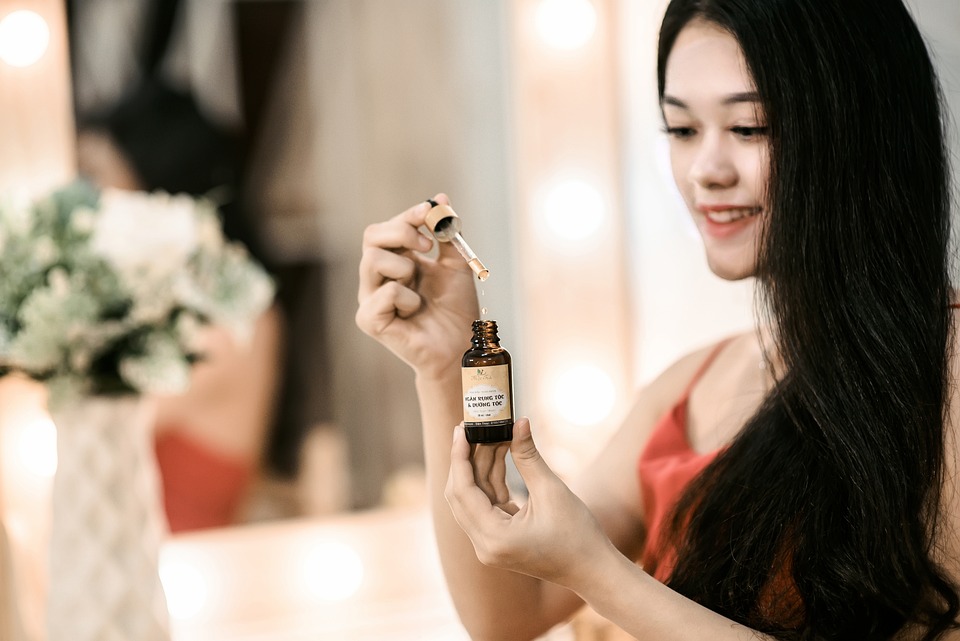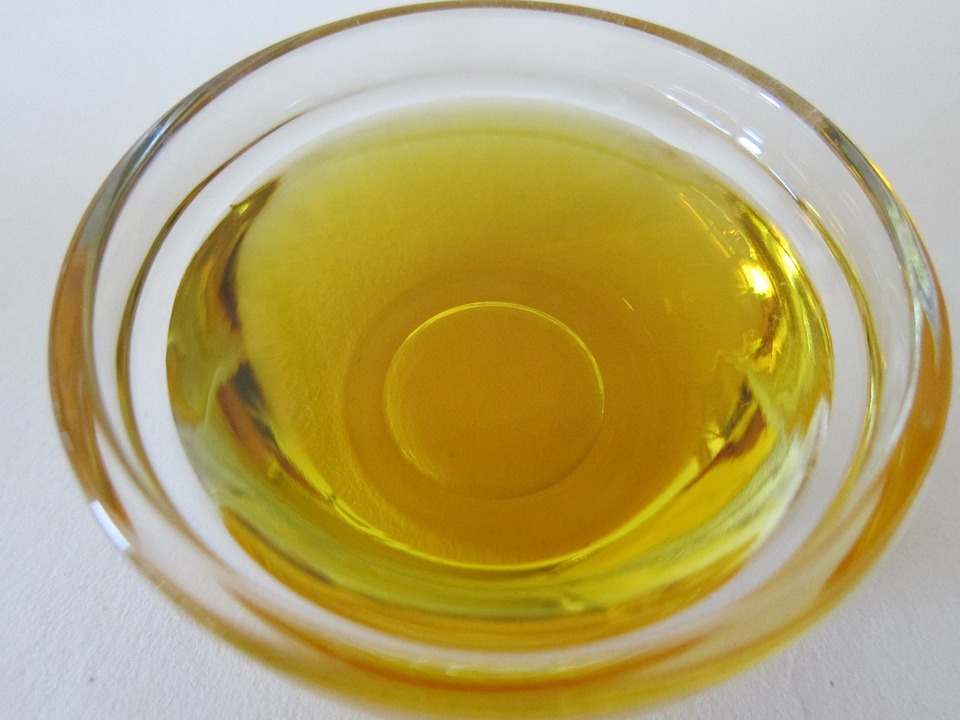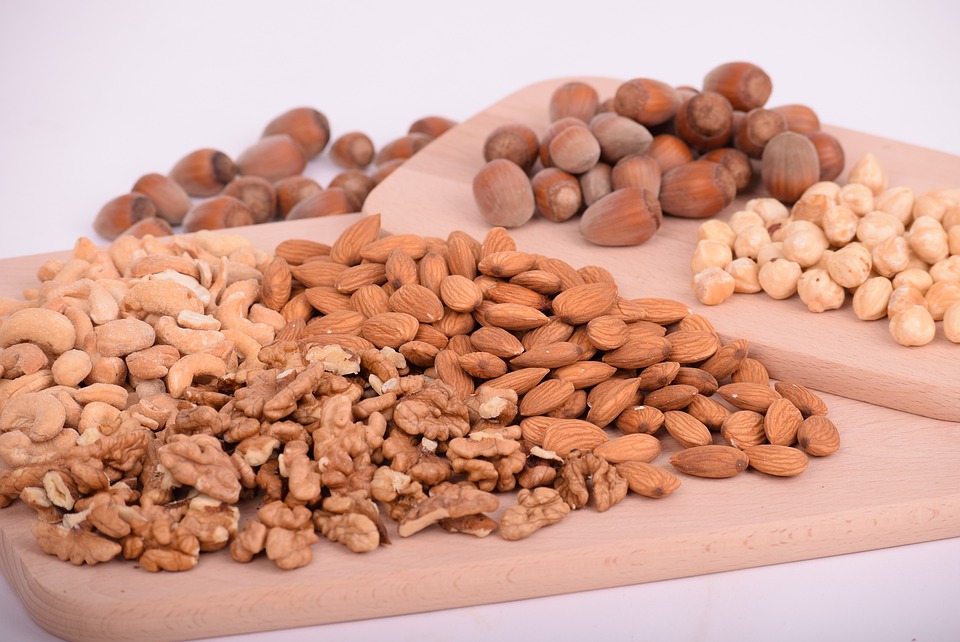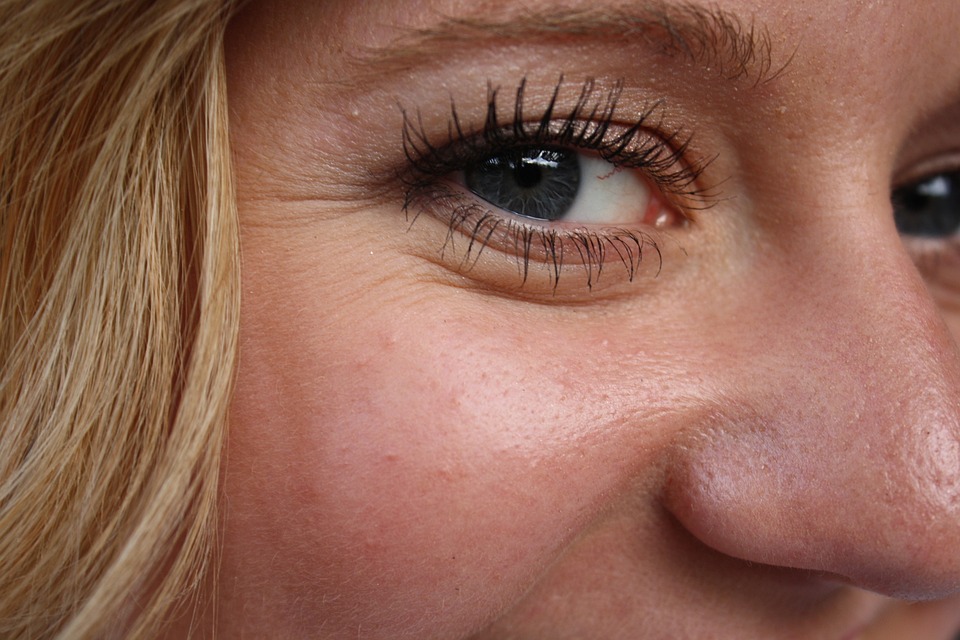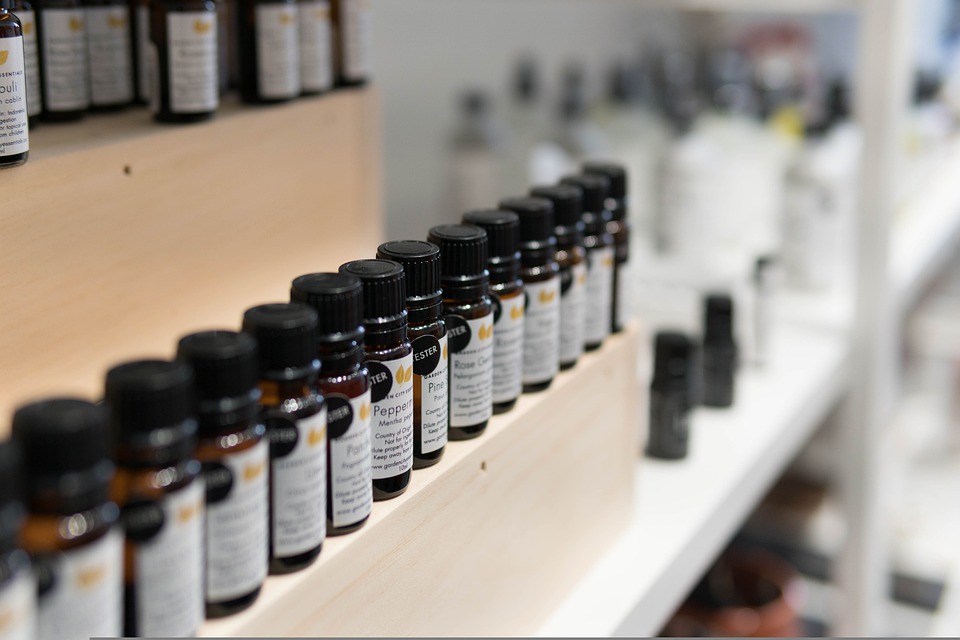
Facial Oils: What Are They?
Facial oils are typically produced from the nuts or seeds of plants. They are rich in fatty acids and depending on the oil, can have vitamins, minerals, and other ingredients that can benefit the skin. Facial oils hydrate and moisturize the skin while providing nutrients and other benefits. They can also create a protective barrier to keep hydration locked in the skin and keep any irritants out.
What Is Argan Oil
Argan oil is a type of oil that comes from Argan trees. These trees are mostly found in southern Morocco and grow in semi-desert climates. The trees produce fruit, and the oil is extracted from this fruit. Argan oil has been used for centuries for beauty and hair care. It is also commonly used in the culinary world because of its nutty flavor.
It contains many nutrients that are beneficial for the skin, hair, and body, including antioxidants, fatty acids, and anti-inflammatory agents.
The Argan Oil skincare trend started with the Josie Maran brand, whose products are based on this oil. Since then, its popularity has grown, with many other brands creating their own versions of Argan Oil facial oils.
Benefits Of Argan Oil
- Moisturizing – While most of its moisturizing properties come from its fatty acid makeup, Argan oil has a high content of Vitamin E, which is known to have great moisturizing benefits for the skin
- Anti-inflammatory – Argan oil is rich in anti-inflammatory compounds which means it can treat certain inflammatory skin conditions, reduce sensitivity and irritation, and may even help treat acne
- Soothing – Thanks to its high concentration of Vitamin E, Argan Oil is very soothing and is a great choice for sensitive skin types. Vitamin E has anti-inflammatory and soothing properties.
- Anti-oxidant – In addition to Vitamin E, which also has antioxidant properties, Argan oil has other antioxidants like CoQ10 which help defend and protect the skin against free radical damage
- Healing – Argan oil is also known to help treat certain skin conditions. It’s high in antioxidants and fatty acids which means it can help heal wounds, reduce inflammation, and speed up the time it takes for a cut or even a zit to heal
- Can Treat Skin Conditions – Argan oil has been known to help treat skin conditions like dermatitis and psoriasis thanks to its anti-inflammatory properties
- Improves Skin Elasticity – a study showed that topical and oral argan oil improved skin elasticity which not only helps with aging and reduces fine lines and wrinkles, but it may even help treat and prevent stretch marks
What Is Rosehip Oil
Rosehip Seed Oil is derived from the seeds of rose bushes. The process usually involves the removal of petals from the bush. Most Rosehip Seed Oil originates in the Andes Mountains, though other areas of the world are known to produce it as well.
Rosehip oil is a unique oil in that it is much lighter than other oils, and does not leave a greasy feeling on the skin. This makes it ideal for people with oil and acne-prone skin, as it moisturizes without making the skin feel oily.
Although it is most commonly known for its high concentration of antioxidants and brightening properties, there are many other benefits to this oil as well. It is a great option for people who do not like the feel or finish of traditional facial oils.
Benefits Of Rosehip Oil
Whereas Argan Oil has several advantages, Rosehip oil has even more. Let’s take a look at some of them in more detail.
- Anti-aging – Rosehip seed oil is high in Vitamin A which helps to stimulate collagen production to plump fine lines and wrinkles and reduce premature aging. Keeping the skin moisturized can also help to temporarily plump the skin for a more youthful look
- Brightening – Rosehip oil is known for its brightening properties. It’s rich in Vitamin A and Vitamin C which help to brighten the skin tone and fade discolorations like sunspots and acne scarring
- Hydrating – Many people don’t think of oils as being hydrating, but since they are rich in fatty acids, they can help to keep hydration locked in
- Exfoliating – Because of its high concentration of Vitamin A, Rosehip oil can help to exfoliate the top layer of the skin to help with skin tone, acne, texture and scarring and more
- Antioxidant – Rosehip oil is rich in antioxidants but has a particularly high concentration of Vitamin C, which is one of the strongest antioxidants. Antioxidants help to protect the skin from free radical damage from environmental factors like UV rays or pollution
- Acne – In addition to the acne-fighting properties of Vitamin A, Rosehip Oil also has antibacterial properties so it can kill acne-causing bacteria
- Healing – This oil is also rich in nutrients, vitamins, antioxidants, and other components that help to speed up wound healing and promote tissue repair
- Anti-inflammatory – It’s been found that rosehip oil is a great anti-inflammatory facial oil that can help to reduce redness and calm irritated skin. It can also help with inflammatory skin conditions like eczema
Rosehip Oil Vs Argan Oil – Nutritional Composition
Rosehip oil is good for your skin, and Argan oil is both nutritious and good for your skin. Rosehip oil can’t be eaten safely, but you can make a delicious tea from the Rosehip fruit, which is high in vitamin C.
Arman oil can also be used in many ways such as on top of salads or in smoothies.
The most popular way to use these oils is to put them on your skin, and they are both good at making you look younger. I’ll go into further detail about these later in the article, but for now, let’s take a look at the nutritional profile of each of these oils:
Argan Oil:
Argan oil contains both monounsaturated and polyunsaturated fatty acids, with oleic acid and linoleic acid making up 43% and 36% respectively. These two acids are essential in our diets, and are therefore called “essential fatty acids” (EFAs).
Argan oil is rich in antioxidants like vitamin E, carotenes, phenols, and co-enzyme Q10, which help scavenge free radicals and promote healthy skin.
Rosehip Oil:
The best type of Rosehip oil is made from the seeds, not the fruit. Some Rosehip oils don’t specify that they’re made from seeds, so be sure to check the label.
Rosehip oil is enriched with a combination of nutrients like essential fatty acids, natural retinol form of vitamin A, and vitamin E. Some types of Rosehip oil may also have a small amount of vitamin C. You can usually find out whether an oil has high levels of vitamin C by checking its advertising or packaging. Most of the time, if an oil has high levels of vitamin C, it is made mostly from the rosehip fruits of the plant.
The biggest difference lies in their ratio of linoleic acid to oleic acid, with rosehip oil being almost double in oleic acid. These two oils have a lot in common, the most notable being that they both have high concentrations of EFAs and high levels of antioxidant vitamin E. The biggest difference is the ratio of linoleic acid to oleic acid, with rosehip oil having almost twice as much oleic acid.
Argan Oil Vs Rosehip Oil – For Anti-Aging
Argan oil and Rosehip oil are often found in anti-aging skincare products. They can also be used directly on the skin, where they will be more concentrated and have more benefits. Argan oil has the highest concentration of oleic acid, while Rosehip oil has the highest concentration of linoleic acid.
Oleic acid, which can easily penetrate the top layers of skin, enhances the anti-aging properties of argan oil. It may also help improve memory, which often declines with age.
Argan oil has been shown to improve skin elasticity and restore its natural barrier function in studies. This barrier function decline is caused by weather, sun exposure, and poor skincare habits, among other things. By repairing the skin’s barrier, its ability to retain moisture is improved, making the skin feel more moisturized and plump.
Linoleic acid has the beneficial property of stimulating cellular activity and cell regeneration, as well as acting as an anti-inflammatory. This can help to slow down the aging process, as inflammation is one of the main factors that speeds it up.
Rosehip oil is a significant source of phytonutrients because of its antioxidant properties. Various studies have demonstrated the anti-aging capabilities of these compounds.
Argan oil is more easily absorbed by the skin and has higher antioxidant properties than Rosehip oil.
Both of the oils have been shown to minimize the appearance of lines and wrinkles, but neither of them have been shown to have skin lifting properties.
Rosehip Oil Or Argan Oil For Acne?
Acne is a skin condition that occurs when the hair follicles become clogged with oil and dead skin cells. It often causes whiteheads, blackheads, or pimples and is most likely to occur on the face, forehead, chest, upper back, or shoulders.
A compounds ability to soothe and reduce inflammation makes it ideal for acne-prone skin. Both Rosehip and Argan oil have high levels of vitamin E, which helps to calm the skin. They also both have high levels of essential fatty acids, which help to reduce inflammation within the skin. In addition to being applied topically, Argan oil can also be taken orally to help reduce acne.
Both Argan and Rosehip oils have a non-comedogenic rating, meaning they will not cause blackheads or breakouts. Argan oil has a 0 rating while Rosehip oil has a 1 rating.
Rosehip Oil Vs Argan Oil – Which Oil Is More Suited To Oily Skin?
Rosehip oil is better for people with excessively oily skin because it is high in linoleic acid, which is what oily, comedogenic skin needs to balance the excess oleic acid produced in the sebum.
How To Use Argan Oil And Rosehip Oil
There are many different ways that you can use facial oils, such as argan and rosehip oil. Some of the best ways to use these oils include using them as a moisturizer, using them to remove makeup, and using them to help with acne.
Cleansing Oil
Oil cleansing is a method of using any pure oil to cleanse the skin, by massaging it into the skin to break down dirt, oil, and makeup, and then following with a traditional cleanser to remove excess oil and cleanse the skin.
This method of cleansing is more likely to leave oil on the skin, even after cleansing. Most oil cleansers contain emulsifiers that help them rinse off more cleanly.
Mix With Moisturizer
A facial oil should usually be the last step in your skincare routine, unless you are also using sunscreen, in which case that should be applied last. Adding a few drops of argan or rosehip oil to your facial oil can help your skin to better absorb it and prevent it from looking or feeling too greasy.
Use On Top Of Moisturizer
One way to use oil is to apply a few drops on top of your moisturizer.
Use As A Hair Mask
This is not related to skincare, but it is one of my favorite ways to use Argan oil. I apply it from root to tip and leave it in for at least an hour, sometimes I leave it in overnight. Then I shampoo and condition like normal.
Can Argan Oil And Rosehip Oil Be Used Together?
Can you combine Argan and Rosehip oil? Yes you can! Combining these two oils creates a perfect balance of oleic and linoleic fatty acids, as well as providing vitamin A and E. This makes for an amazing all-purpose skincare oil.
Does Rosehip Oil Get Rid Of Wrinkles?
Although rosehip oil contains anti-aging ingredients like Vitamin A and Vitamin C, it will not be as powerful as a dedicated vitamin c serum or retinol. However, it can make a great addition to an anti-aging routine!

